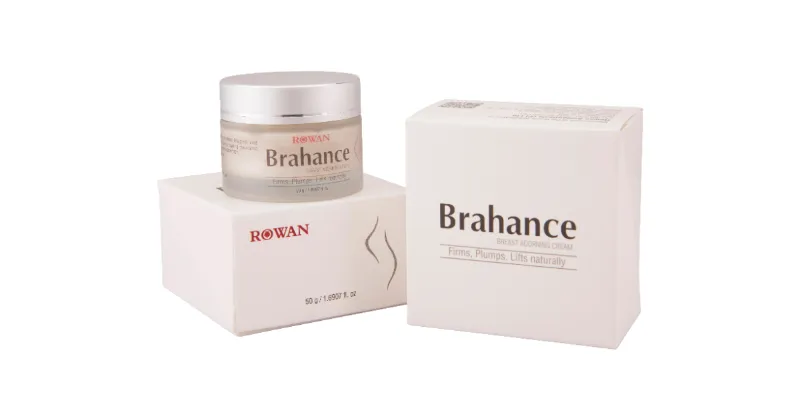This father-son duo’s pharma company is taking on the likes of Sun Pharma, Abbot
Rowan Bioceuticals was founded by Arun Narang after working in the pharma industry for almost 15 years. Today, the company is clocking an annual turnover of Rs 20 crore, and exports to countries like Sri Lanka, Turkey, and the UAE.
Indians, especially the youth, are giving importance to skin and hair-related problems more than ever before. These problems can be attributed to increasing stress levels, hormonal changes, lifestyle changes, and other environmental factors.
However, the increase in skin-related problems and growing awareness about these issues are driving the growth of the dermatology segment in India. According to a report by Research and Markets, the Indian skincare market stood at $1.6 billion in 2017, and is projected to grow at a CAGR of 9 percent to reach $2.7 billion by 2023.
India currently houses several well-known brands in the pharmaceutical and derma-cosmetic segment such as Sun Pharma, Abbott, , etc.
Despite the competition, Delhi-based Rowan Bioceuticals Private Limited has managed to carve a niche for itself in the Indian and international market. Founded in 2005 by Arun Narang (56), the pharmaceuticals company manufactures products that fall under the derma-cosmetics domain in the skincare and haircare category.
It claims to clock a turnover of almost Rs 20 crore annually, and is currently exporting its products to countries like Turkey, Sri Lanka and the UAE.

Arun Narang, Founder and Director; and Aayush Narang, Business Development Head, Rowan Bioceuticals
The journey
Arun started his journey in Meerut, Uttar Pradesh, as a sales representative in the pharma sector in 1989. He worked with top pharma companies like Ranbaxy, Macmillan, Alembic, etc. In 2004, after getting enough experience, Arun decided to sell his shares in Ranbaxy, and launched his company, Rowan Bioceuticals, with an investment of around Rs 4 lakh.
To begin with, he studied many international journals and articles to gain insight about the sector. Initially, he got some products manufactured on a contractual basis, and realised there is scope for him in the market. At that time, the demand for derma products was also picking up.
The journey of starting a company in his 40s was not easy for Arun, shares his son Aayush Narang (29), who is now the Business Development Head of the company.
Aayush had no interest in joining the company because he saw his father working extremely hard, always out on tours, doing everything by himself - from packaging to administration. In addition, the capital for operating the business was also limited in those years, he shares.
However, destiny had other plans for this father-son duo.

Brahance, Breast-firming cream by Rowan Bioceuticals
Business by chance
Aayush says he did not relate to his father’s business in the early years, and planned to do something else. While pursuing his graduation, he stumbled upon an article on mystery auditors, where big brands kept an eye on their stores and operations using mystery visits. He saw this as a career option, which is quite popular in the USA and Europe.
“There were two to three major mystery audit firms who would hire freelancers to do such visits in company stores and see if all SOPs were being followed. But these Indian firms were confined to the retail sector of apparel brands, telecom stores, etc.,” says Aayush.
However, he registered and conducted mystery audits for almost 67 brands, including BMW, Taj, ITC etc., he claims. And this is how he built interest in business and brand building.
After completing his studies, Aayush decided to join his father’s business. Aayush shares that his father started the business with the intention of making it a household brand with a global reach.
Aayush, on the other hand, was very fascinated by the idea of making it big. Together they built the brand, which now commands a turnover of Rs 10.8 crore from the domestic market, and Rs 9 crore from the international markets.
Expansion and diversification
Rowan Bioceuticals has over 70 categories, of which 12 categories are manufactured in-house in its facility in Delhi, and the remaining 58 categories are manufactured on contractual basis by units spread across Karnataka, Uttarakhand, and Himachal Pradesh. The raw materials for the products are sourced from countries like Japan, South Korea, and the USA, which is also the biggest market for anti-aging creams.
Some of the notable products of the company include Tanscreen, a sunscreen; KLOSH-F, which helps in reducing hair fall; Klosh Oil; Glosutix Plus, an antioxidant with several benefits; and Dewmelan, which helps in treating Melasma and other skin problems.
The company also counts breast and neck firming creams - Brahance and Neckfirm - as its USP.
Two of the company’s products, including Glosutix Plus, are USFDA accredited. Rowan also sells its products through digital platforms like Facebook and Instagram, as well as through its website.
It is also listed on FIEO (Federation of Import and export organisation) where the business fulfills orders across the world.
Aayush says, Rowan Bioceuticals initially started exporting to Sri Lanka, and then moved to countries like Istanbul and others.
He adds, among the foreign countries, the company has found most success in the UAE market, where it already has an office, and also plans to set up a manufacturing facility.
Pointing out the main difference between the domestic and the international market, Aayush says,
“India is a large market geographically, hence the competition is more here with bigger as well as smaller players. This is not the case with international markets where population is lesser, and markets are relatively niche.”
However, according to him, COVID-19 did not spell much disruption for the business, except for problems in logistics. In the coming months, Aayush says, it will be challenging for his company as the raw materials stock might deplete.
Moreover, with people mostly at home, the demand for skincare and hair care products also took a hit of over 40 percent in the last three months.
In the next few months, Aayush says he is looking forward to launching a mobile application, Doctrac, with AI-interface that will connect the doctors and the pharma representatives in the post COVID-19 scenario.
Edited by Megha Reddy









